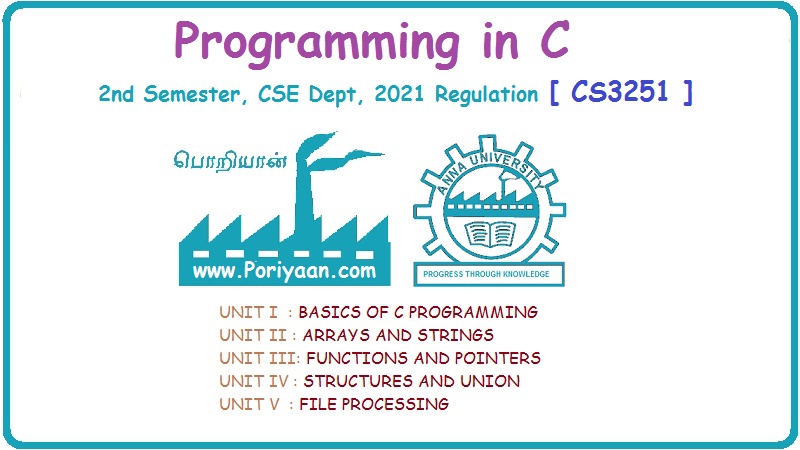Programming in C: Unit III (b): Pointers
Memory Allocation in C Programs
Static allocation When we declare a static or global variable, static allocation is done for the variable.
MEMORY
ALLOCATION IN C PROGRAMS
C
supports three kinds of memory allocation through the variables in C programs:
Static allocation
When we declare a static or global variable, static allocation is done for the
variable. Each static or global variable is allocated a fixed size of memory
space. The number of bytes reserved for the variable cannot change during
execution of the program. Till now we have been using this technique to define
variables, arrays, and pointers.
Automatic allocation
When we declare an automatic variable, such as a function argument or a local
variable, automatic memory allocation is done. The space for an automatic
variable is allocated when the compound statement containing the declaration is
entered, and is freed when it exits from a compound statement.
Dynamic allocation
A third important kind of memory allocation is known as dynamic allocation. In
the following sections we will read about dynamic memory allocation using
pointers.
Programming in C: Unit III (b): Pointers : Tag: : - Memory Allocation in C Programs
Related Topics
Related Subjects
Programming in C
CS3251 2nd Semester CSE Dept 2021 | Regulation | 2nd Semester CSE Dept 2021 Regulation
